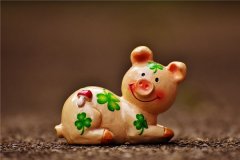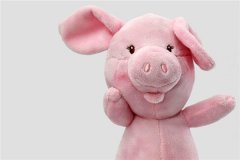Nobody else in the computer industry, or any other industry for that matter, could put on a show like Steve Jobs. His product launches, at which he would stand alone on a black stage and conjure up a “magical” or “incredible” new electronic gadget in front of an awed crowd, were the performances of a master showman. All computers do is fetch and shuffle numbers, he once explained, but do it fast enough and “the results appear to be magic”. He spent his life packaging that magic into elegantly designed, easy to use products.
到目前为止,世界上还没有哪个计算机行业或者其他任何行业的领袖能够像乔布斯那样举办出一场万众瞩目的盛会。在每次苹果推出新产品之时,乔布斯总是会独自站在黑色的舞台上,向充满敬仰之情的观众展示出又一款“充满魔力”而又“不可思议”的创新电子产品来,他的发布方式充满了表演的天赋。计算机所做的无非是计算,但是经过他的解释和展示,高速的计算就“仿佛拥有了无限的魔力”。乔布斯终其一生都在将他的魔力包装到了设计精美、使用简便的产品当中去。
He had been among the first, back in the 1970s, to see the potential that lay in the idea of selling computers to ordinary people. In those days of green-on-black displays, when floppy discs were still floppy, the notion that computers might soon become ubiquitous seemed fanciful. But Mr Jobs was one of a handful of pioneers who saw what was coming. Crucially, he also had an unusual knack for looking at computers from the outside, as a user, not just from the inside, as an engineer—something he attributed to the experiences of his wayward youth.
乔布斯早在20世纪70年代便已经看到了向普通大众出售计算机这块业务的潜力。在当年世界还在使用绿黑相间的屏幕、5寸软盘的时代,让电脑成为家家户户必备的设备似乎还是一个遥不可及的梦想。但是乔布斯是少数几位具有远见卓识的先驱之一。而更为重要的是,乔布斯拥有一个不寻常的本领,即他不仅会从工程开发人员的角度从内审视电脑,同时他还会从用户的角度来从外界观察人们对电脑的需求——他将这一本领归功于他自己任性的青年时代。
Mr Jobs caught the computing bug while growing up in Silicon Valley. As a teenager in the late 1960s he cold-called his idol, Bill Hewlett, and talked his way into a summer job at Hewlett-Packard. But it was only after dropping out of college, travelling to India, becoming a Buddhist and experimenting with psychedelic drugs that Mr Jobs returned to California to co-found Apple, in his parents' garage, on April Fools' Day 1976. “A lot of people in our industry haven't had very diverse experiences,” he once said. “So they don't have enough dots to connect, and they end up with very linear solutions.” Bill Gates, he suggested, would be “a broader guy if he had dropped acid once or gone off to an ashram when he was younger”.
乔布斯从小在硅谷长大,使得他从小便有机会耳濡目染到计算机的世界。在20世纪60年代末,他有幸认识了自己心目中的偶像比尔·休利特(Bill Hewlett),并成功地为自己获得了到休利特创办的惠普做暑期兼职的机会。此后他在读了1年大学后辍学、前往印度、开始笃信佛教并尝试了迷幻药剂,最终他选择回到了加利福尼亚州并与好友联合创办了苹果。他的公司于1976年的愚人节当天在他的父母的车库里正式开张。他曾经表示:“很多在我们这个行业的人都没有过如此复杂的经历,因此他们没有足够的经验来推出非线性的解决方案。”他表示比尔·盖斯“如果在年轻的时候吸吸迷幻药或者经常去花天酒地一下的话,他的眼界肯定将会更加开阔。”
Dropping out of his college course and attending calligraphy classes instead had, for example, given Mr Jobs an apparently useless love of typography. But support for a variety of fonts was to prove a key feature of the Macintosh, the pioneering mouse-driven, graphical computer that Apple launched in 1984. With its windows, icons and menus, it was sold as “the computer for the rest of us”. Having made a fortune from Apple's initial success, Mr Jobs expected to sell “zillions” of his new machines. But the Mac was not the mass-market success Mr Jobs had hoped for, and he was ousted from Apple by its board.
例如乔布斯从大学辍学并去参加了书法班,使得乔布斯对排版产生了浓厚的兴趣。但是他学习各种字体的目的却是使之成为麦金塔(Macintosh)系统的核心卖点,这款由苹果于1984年推出的电脑产品还具有开拓了鼠标驱动、图形优化的特性。其中的窗口、图标以及菜单等用户友好的界面和功能被外界视为一款“给大众使用的电脑”。乔布斯在通过苹果挖得了第一桶金子之后,便期望着通过未来新的机型获得“数以亿计”的收益。但是Mac并没有像乔布斯的想象那样大获成功,而他自己也被苹果踢出了董事会。
Yet this apparently disastrous turn of events turned out to be a blessing: “the best thing that could have ever happened to me”, Mr Jobs later called it. He co-founded a new firm, Pixar, which specialised in computer graphics, and NeXT, another computer-maker. His remarkable second act began in 1996 when Apple, having lost its way, acquired NeXT, and Mr Jobs returned to put its technology at the heart of a new range of Apple products. And the rest is history: Apple launched the iMac, the iPod, the iPhone and the iPad, and (briefly) became the world's most valuable listed company. “I'm pretty sure none of this would have happened if I hadn't been fired from Apple,” Mr Jobs said in 2005. When his failing health forced him to step down as Apple's boss in 2011, he was hailed as the greatest chief executive in history. Oh, and Pixar, his side project, produced a string of hugely successful animated movies.
然而塞翁失马焉知非福,乔布斯在多年以后谈到被踢出苹果董事会这件事情的时候表示,“这是我人生经历当中最令人高兴的一件事。”他在离开苹果后又联合创办了皮克斯动画公司(Pixar),专攻电脑动画业务;并又创办了另外一家从事电脑产品生产的企业NeXT。他于苹果在1996年陷入困境的时候再度出山,在苹果收购了NeXT之后再度将自己的创意注入到了苹果的系列产品当中。之后的历史便成为了经典:苹果先后推出了iMac、iPod、iPhone以及iPad,并且很快便成为了全世界市值最高的企业之一。乔布斯在2005年表示:“我敢肯定,如果苹果当年没有开除我的话,这一切都不会发生。”直到他于2011年8月由于健康原因辞去CEO职务之前,他一直被外界视为最杰出的CEO。而皮克斯作为乔布斯的一个副业产品,也为大众带来了大量精彩的动画电影。
In retrospect, Mr Jobs was a man ahead of his time during his first stint at Apple. Computing's early years were dominated by technical types. But his emphasis on design and ease of use gave him the edge later on. Elegance, simplicity and an understanding of other fields came to matter in a world in which computers are fashion items, carried by everyone, that can do almost anything. “Technology alone is not enough,” said Mr Jobs at the end of his speech introducing the iPad, in January 2010. “It's technology married with liberal arts, married with humanities, that yields the results that make our hearts sing.” It was an unusual statement for the head of a technology firm, but it was vintage Steve Jobs.
回顾乔布斯的一生,乔布斯早在开发出第一款苹果电脑时便已经远远地走在了时代的前沿。早年的计算机技术主要是强调技术,而乔布斯则率先关注了设计以及使用的便捷性,这也为他在后来推出产品的特性奠定了基础。在他心目当中,电脑应该是一款优雅、简洁并且可以轻松方便地用来了解世界的时尚产品,而大众应该人手一份,同时可以用它来做任何事情。乔布斯在2010年1月发布iPad时,在演说收尾时指出:“单靠科技是远远不够的,必需要让科技与人文科学以及人性相结合,其成果必需能够让用户产生共鸣。”这段台词对于科技业的领袖来说十分不可思议,但是如果了解了乔布斯的背景的话,这也不难理解他为何会如此表述了。
His interdisciplinary approach was backed up by an obsessive attention to detail. A carpenter making a fine chest of drawers will not use plywood on the back, even though nobody will see it, he said, and he applied the same approach to his products. “For you to sleep well at night, the aesthetic, the quality, has to be carried all the way through.” He insisted that the first Macintosh should have no internal cooling fan, so that it would be silent—putting user needs above engineering convenience. He called an Apple engineer one weekend with an urgent request: the colour of one letter of an on-screen logo on the iPhone was not quite the right shade of yellow. He often wrote or rewrote the text of Apple's advertisements himself.
他将自己把不同行业和学科集成的思维归功于自己关注细节。他表示,“为了让自己能够睡个好觉,我必须确保所有产品的外观美学、设备质量都必须一丝不苟地完成。”他在开发第一台麦金塔电脑的时候曾经强烈要求电脑不能内置冷却扇,以确保电脑运行的时候能够足够安静——他将用户的需求凌驾于了工程设计之上。他还曾经命令一位苹果的工程师花一个周末的时间加班解决iPhone的屏幕上一个字母的颜色不显示精确的问题。同时他还会经常自己撰写或者修改苹果的广告文字。
His on-stage persona as a Zen-like mystic notwithstanding, Mr Jobs was an autocratic manager with a fierce temper. But his egomania was largely justified. He eschewed market researchers and focus groups, preferring to trust his own instincts when evaluating potential new products. “A lot of times, people don't know what they want until you show it to them,” he said. His judgment proved uncannily accurate: by the end of his career the hits far outweighed the misses. Mr Jobs was said by an engineer in the early years of Apple to emit a “reality distortion field”, such were his powers of persuasion. But in the end he changed reality, channelling the magic of computing into products that reshaped music, telecoms and media. The man who said in his youth that he wanted to “put a ding in the universe” did just that.
乔布斯在公众场合上是一个如禅宗一般神秘的人物。他是一个专制而脾气暴躁的经理人。但是他是有狂妄的本钱的。他在评估和开发潜在新产品的时候总是拒绝使用市场调研以及观察机构,而更乐意相信他自己的直觉。他表示:“很多情况下,人们在见到一件新事物之前是很难说出自己到底想要什么的。”而他的观点在大多数情况下毫无疑问是正确的:在他的职业生涯中,他的成功远远超过了失败。一位苹果的早期员工称乔布斯拥有“屏蔽现实”的本领,以便追寻自己的内心直觉,但是最终他却能够改变现实,通过魔法般的手段重塑了电脑与音乐、通讯以及媒体的关系。乔布斯在年轻的时候曾经表示“希望能够做出一番让宇宙为之一震的事业。”而他也的确做到了。

83年猪女40岁后命运开始好,40岁的猪命最好
4-29
83属猪的人十年大运
4-29
83属猪的一生婚姻外遇
4-29
1947年的猪寿终是哪年
4-29
1959年属猪的是什么命,属猪人运势好不好
4-29
1971年猪十年大运预测
4-29